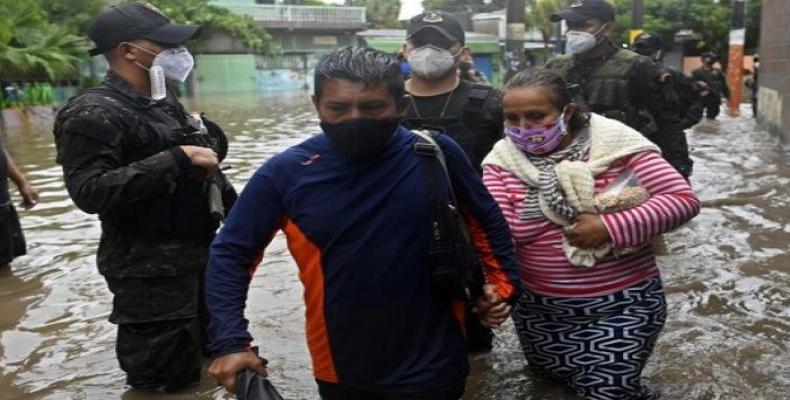El Salvador and Guatemala, two Central American countries, characterized by huge inequalities and great poverty, were hit hard over the past several days by Tropical Storm Amanda. It was a terrible tragedy in the midst of the COVID-19 pandemic and will only add more suffering to an already devastated population.
In El Salvador, a small territorial extension of only 21,000 square kilometers, the natural phenomenon caused at least 15 deaths, several missing people and tens of thousands of families heavily affected.
The authorities have declared a Red Alert due to the extent of the damage and although the heavy rains have stopped, there are high probabilities of flooding and landslides.
Before the storm, the situation was already complex due to the presence of SARS-CoV-2. With an approximate population of six million people, there are more than 2,580 infections and 46 deceased.
The fight against the disease has been hampered by tensions between Salvadorean Presdient Nayib Bukele and political opponents, but the common fear is that the storm may contribute to spreading the virus among the people.
Not much different is the situation in Guatemala, where Tropical Storm Amanda provoked severe floods and landslides. The latest reports indicate that there were two deaths in Guatemala, including a 9-year-old child who was washed away by a river.
Several communications routes, such as one inaugurated a few months ago by former President Jimmy Morales, which cost approximately one million dollars, were left impassable in a country where public works are usually of a poor quality and a source of corruption.
In Guatemala, the fragile health care system is dealing with COVID-19, which amounts to 5,087 contagions and 108 deaths. Hospitals are overwhelmed to the extent that asymptomatic patients must stay in hotels to make room for those who have already developed the symptoms.
Both countries have fought internal wars for many years, which ended after the signing of peace agreements that did not materialize as a transformation of the unjust socioeconomic structures, hence the causes that originated the conflicts are still present.
The United States has a significant influence in both countries, which translates into increasingly powerful oligarchies, while most of the people remain in poverty and exclusion and are targeted by disease and natural phenomena.
When it rains in El Salvador and Guatemala, it pours.


